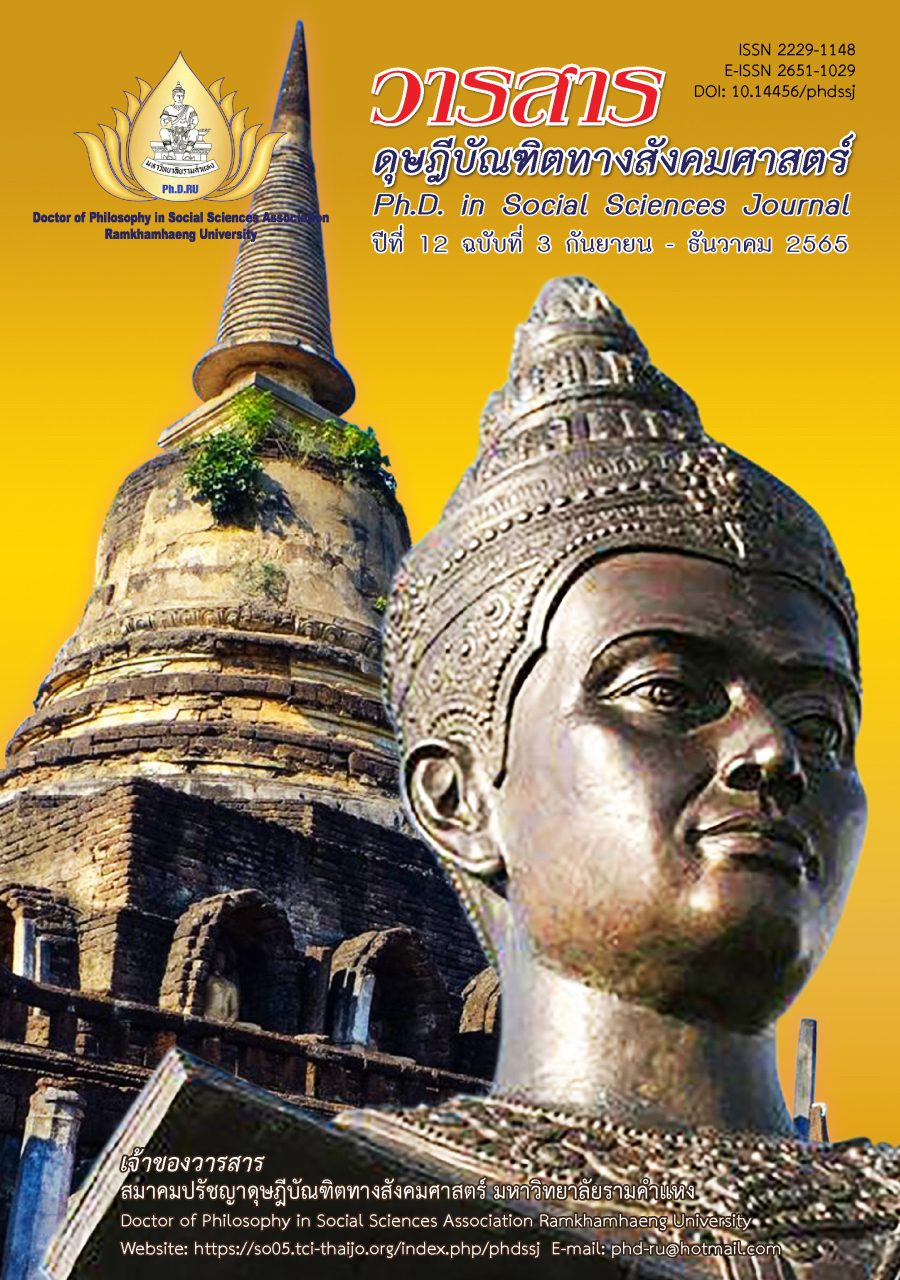The Role of Thai Teacher in the New Normal Era
Main Article Content
Abstract
This academic article aims to analyze the roles of modern Thai teachers who should be in teaching and learning in order to keep up with the changing world. It uses the necessary skills for Thai teachers as an analytical framework, consisting of knowledge of the subject being taught. The use of knowledge of the content, technology to assist in teaching and learning, constructionist to planning learning activities, connecting students with each other, collaborating cooperative learning activities, having skills communication, creative design of learning activities, and a caring of sincerity towards students.
The results of the analysis revealed that the role of Thai teachers. In the past had a teacher-centered approach to teaching and learning. When entering a new normal era, the role of a teacher would change according to the times. Teachers as teachers should be able to adapt to the changing times, including having good knowledge and skills in the content they teach, having the skills to use technology to assist in teaching and learning, constructionist to able to create knowledge by oneself, able to organize activities to connect between learners, play a role in collaborating cooperative learning activities, have communication skills to transfer knowledge to students appropriately, be able to design creative activities learning, and show caring concern for students in order to build their trust. As a result, teaching and learning can achieve its goals.
Article Details

This work is licensed under a Creative Commons Attribution-NonCommercial-NoDerivatives 4.0 International License.
Academic articles, research articles, and book reviews in the Ph.D. in Social Sciences Journal are author’s opinions, and not the publisher’s, and is not the responsibility of the Ph.D. in Social Sciences Journal Philosophy Association, Ramkhamhaeng University. (In the case that research is done on human, the researcher has to be trained in Ethics for Doing Research on Human Training and has to produce the evidence of the training).
References
Chalarux, N. (2015). The teacher’s role and instruction in the 21st century. FEU Academic Review, 9(1), 64-71. [In Thai]
Chittmittrapap, S. (2013). Changing the world of learning in the 21st century and developing towards professional teacher. Retrieved from https://www.pharmacy.cmu.ac.th/unit/unit_files/files_download/2013-03-27มี.ค.2556.pdf [In Thai]
Kaewdang, R. (2000). Education and national power. Office of the Education Council. [In Thai]
Ministry of Education, Bureau of International Cooperation. (2019). Cooperation between Thailand with the United Nations Educational, Scientific and Cultural Organization (UNESCO). Author. [In Thai]
Navikamul, A. (2006). Westerners in Siam. Saitharn. [In Thai]
Neamhom, N. (2015). The roles of teachers and those involved in early childhood education. In Principles of early childhood education (2nd ed.). Sukhothai Thammathirat Open University, The Office of the University Press. [In Thai]
Office of the National Economic and Social Development Council. (2016). National economic and social development plan, no. 11 (B.E. 2555-2559). Retrieved from https://www.nesdc.go.th/download/article/article_20160323112431.pdf [In Thai]
Phra Phompiriya Thavaro (Malairak). (2021). Professional teachers and Thai education in the new normal era. Retrieved from http://lpn.mcu.ac.th/mculpn/wp-content/uploads/2021/03/A-002-พระพรหมพิริยะ-ถาวโร-มาลัยรักษ์-1-11.pdf [In Thai]


